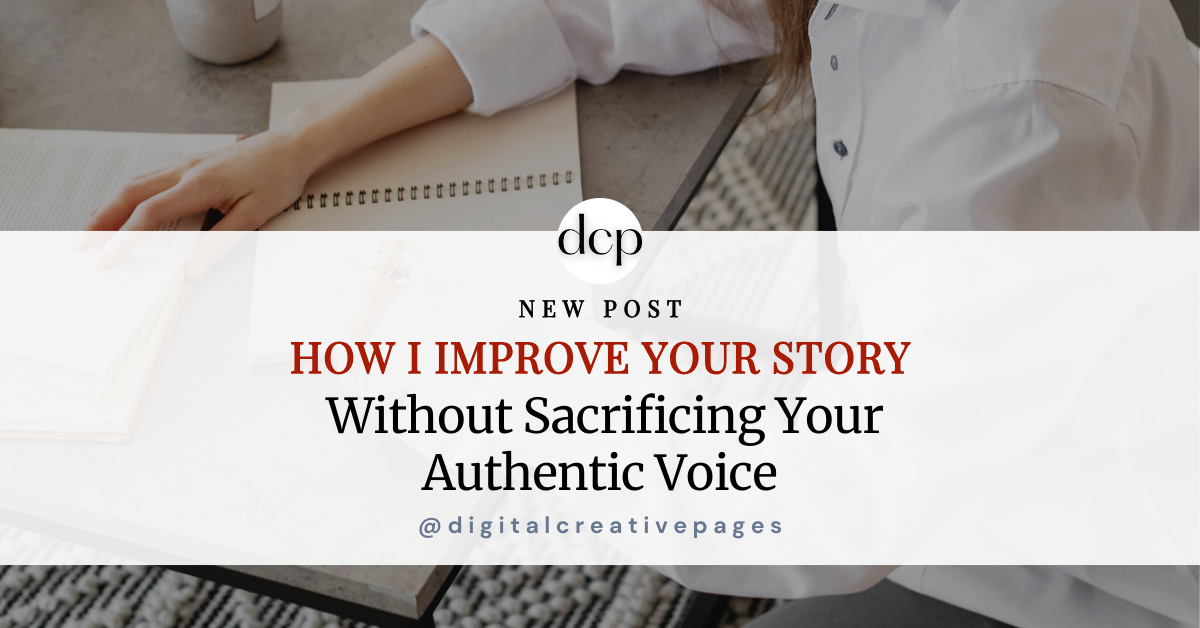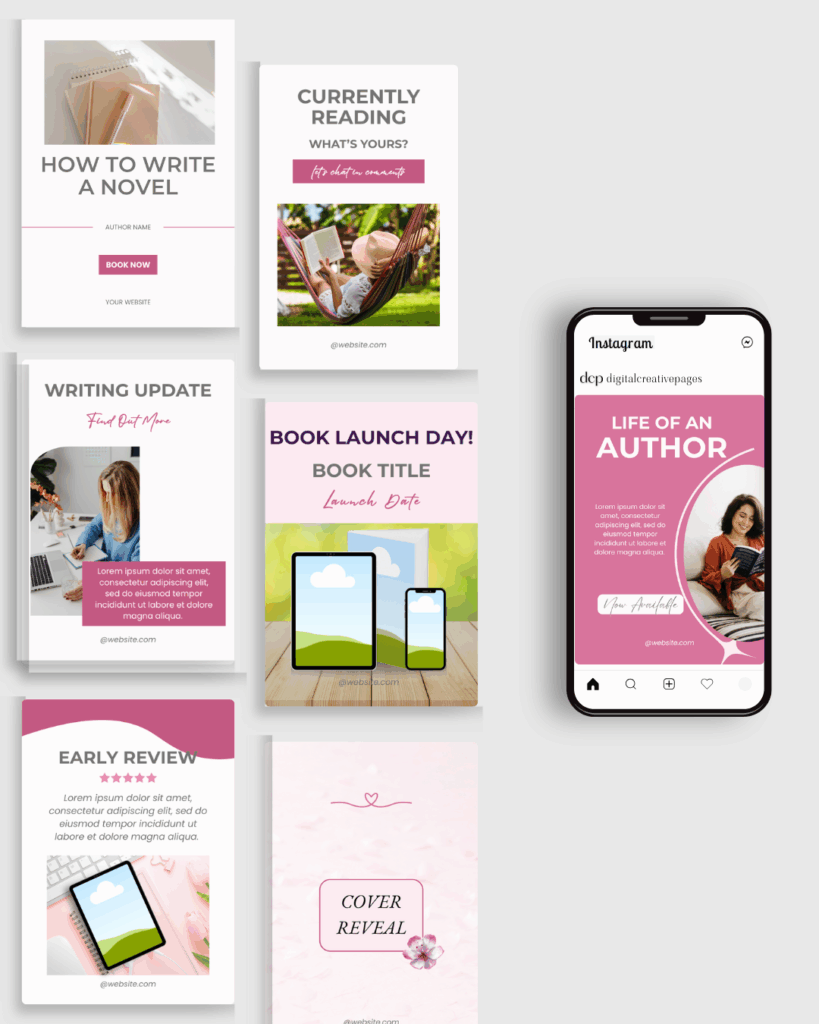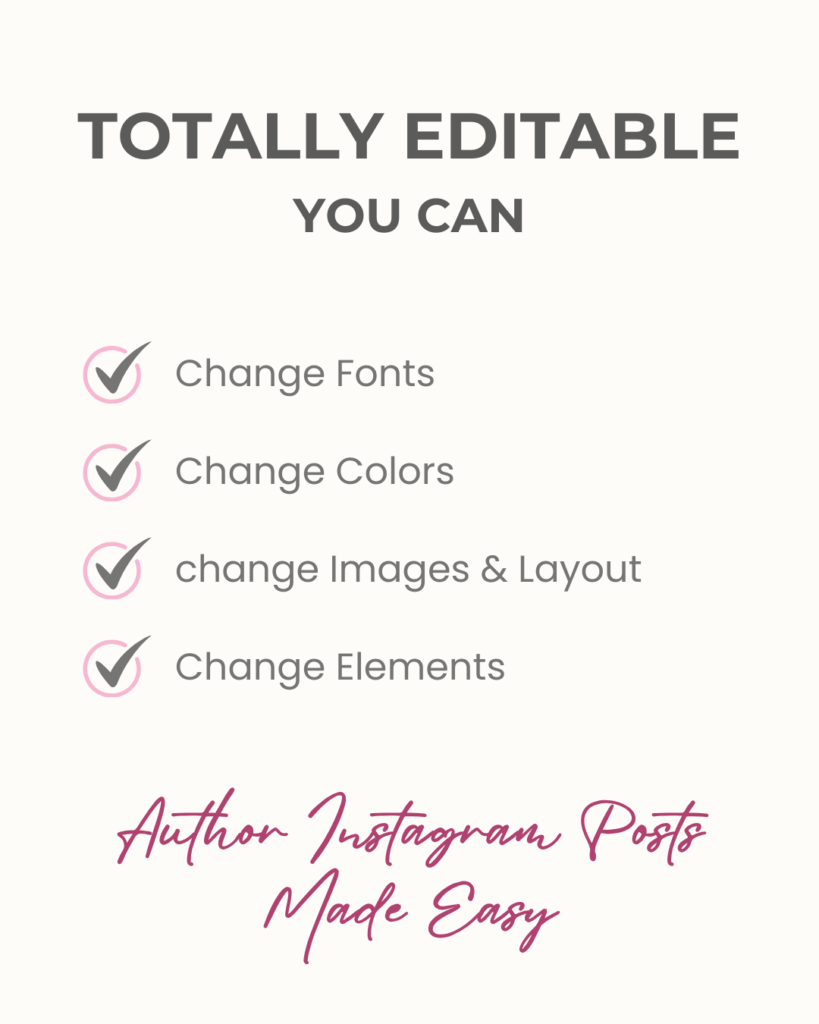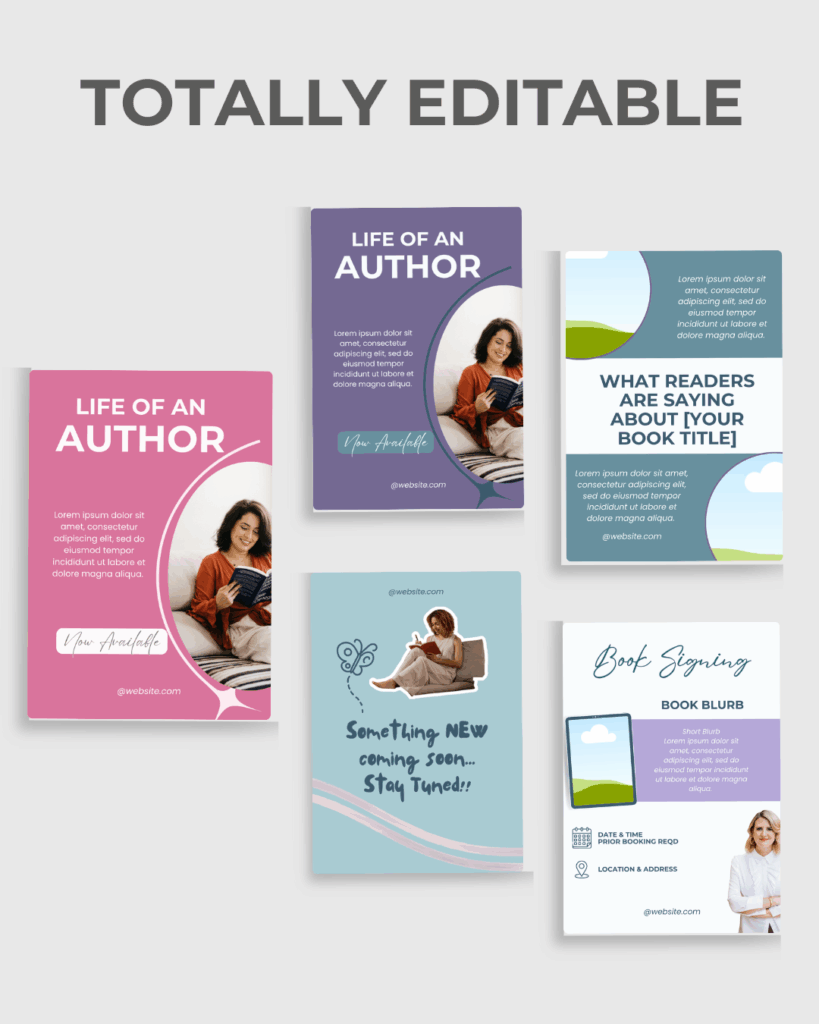Introduction
If you’re an author staring at your manuscript wondering whether your story still sounds like you, you’re not alone. One of the biggest fears writers have when seeking feedback or hiring an editor is simple—but real: “Will they change my voice?” And this is how I improve your story without sacrificing your voice.
As a beta reader and editor who’s worked with both first-time authors and seasoned writers, I’ve seen this fear come up over and over again. And rightly so. You’ve spent months—sometimes years—shaping your story, carving out characters that breathe and talk to you, and weaving your voice into every paragraph. This is your story and your creativity.
You don’t need someone who will strip that away. Instead, you need someone who knows how to sharpen what’s already there—without overwriting your creative fingerprint.
In this post, I’ll walk you through exactly how I help authors strengthen their manuscripts while keeping their voice intact. If you’re unsure what kind of editing support you need—or scared of losing control over your own words—this will guide you step by step.
Pin this for later
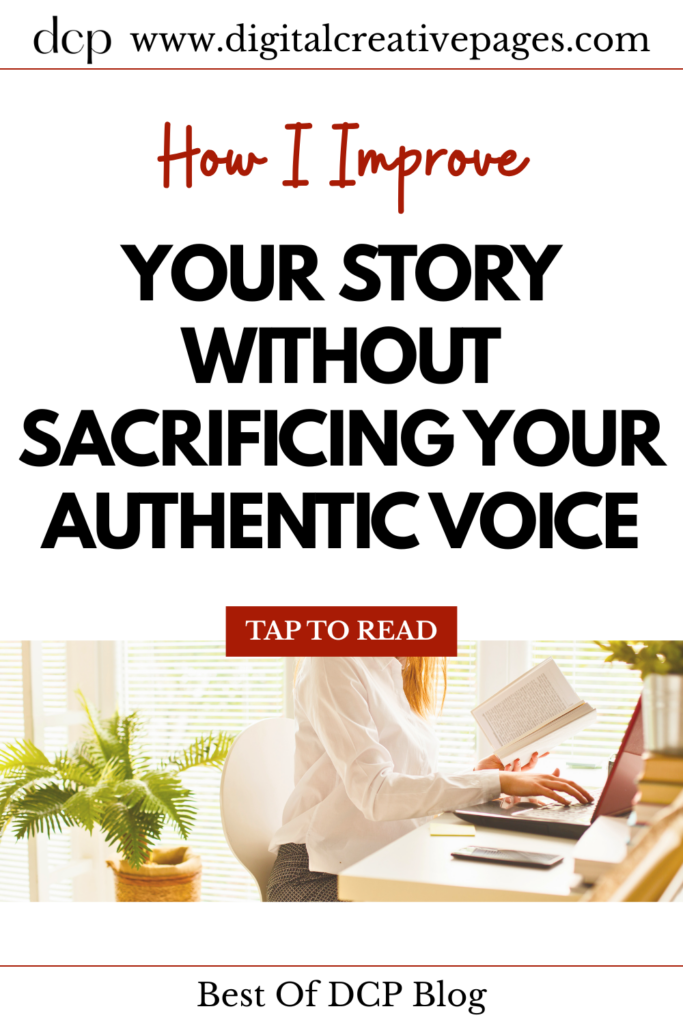
Why “Voice” Matters More Than You Think
Let’s start here: your voice is your author brand.
Readers don’t just come to you for the plot. They come for how you tell the story.
For your rhythm. Your choice of imagery. And your way of showing emotion. That distinct style is what makes your writing memorable—and marketable.
Too many authors, especially those publishing for the first time, believe editing means replacing their words with “perfect” ones. But the goal of editing is never to erase your tone. It’s to amplify it.
Want easy, practical content tips to grow your business? Join my weekly email list for Canva tricks, new social media updates, and simple strategies that actually work.
The 3 Biggest Concerns Authors Share (and How I Handle Them)
Many first-time authors have this basic fear about a beta-reader taking over the book. There are some who think that an editor will not get their story. These are valid fears, and there are many books that I may not get the greater depth of, but I always make it a point to ask the author about the nuances and if what I have understood is what they wanted to convey. And we sit together virtually and make it a version where the prose is easily understood without the author losing their voice.
1. I’m scared you’ll rewrite everything.
I never do. My beta feedback and editing notes are designed to highlight, not rewrite. I might flag a sentence that’s unclear or suggest tightening, but I’ll always tell you why—and how to approach it in your own words. And I always give suggestions. You can then choose to adopt the suggestion or use it as prompt to make the scene stronger.
2. My book isn’t ready yet.
Most authors wait too long to get feedback. You don’t need a polished manuscript for beta reading. But you do need a complete story with one round of editing for me to start beta reading. Complete raw, unclear stories that still feel like WIP is not for beta reading but for alpha reading.
Once your book is complete, and you feel all the plot arcs are weaved in, send it across to me. In fact, early feedback can save you from future rewrites and confusion. I meet you wherever you are in your process, whether it is alpha or beta reading.
3. I don’t know what kind of help I need.
That’s okay. I offer both beta reading (big-picture, reader-first feedback) and developmental editing (in-depth structural and storytelling guidance). We can start with a sample and go from there.
My Editing Philosophy: Clarity, Connection, and Care
Every manuscript is different. But I follow a few core principles with every project.
- Clarity: I want your story to flow effortlessly—chapter to chapter, scene to scene, and your words to have visual imagery
- Connection: I help you deepen the emotional pull for the readers so the book becomes unputdownable and gives them a book hangover
- Care: I treat your work with respect, and I never impose my style onto your voice. Your book is as precious to me as it is to you. I want all my authors to get literary success.
In short, I don’t believe in harsh, clinical edits. I believe in thoughtful, actionable insights that make you feel empowered—not erased. The suggestions that I give are for you to choose or ignore. Your book, your rules. But my feedback is for your story to become a bestseller.
What I Look for When I Beta Read or Edit
Whether it’s a beta read or a deeper edit, here are the key elements I assess in your manuscript:
1. Story Structure
Does your story have a strong opening, rising tension, and a satisfying resolution? Are there sagging middles or rushed endings?
2. Character Arcs
Do your characters grow in believable ways? Do readers understand their motivation and stakes?
3. Pacing + Flow
Are there scenes that drag? Are there jumps in time that feel confusing or abrupt?
4. Voice + Tone
This is where I tread the most gently. I look for areas where your voice can shine brighter—maybe a flat line of dialogue that could sparkle with more subtext, or a scene where your rhythm falters. I love scenes that have more nuances to give an ordinary dialog the depth it needs.
5. Visual Clarity
Sometimes your words feel strong, but readers can’t see what’s happening. That’s when I give feedback to add small sensory details or anchor the reader to the story. Think of it as giving your prose more depth—not more fluff.
How I Preserve Your Voice While Strengthening Your Story
Here’s how I ensure your voice stays intact from start to finish. I am not interested in making your story mine, but I give each book the same level of care that I would give my book.
Margin Comments, Not Line Rewrites
You’ll never receive a manuscript where your entire paragraph has been rewritten. I leave comments explaining what isn’t working and why, so you can choose how to revise. Even if I do feel lines could be rewritten, I would give that suggestion in the comments section.
Reader-Focused Feedback
I always tell you how a reader might experience your scenes. This helps you refine your delivery without guessing what will land. Translating your thoughts to lines where your words land powerfully and imprint themselves on a reader’s mind is what I am striving for.
Voice-First Suggestions
If a sentence is too generic or “off,” I’ll show you why—and offer a few rewrites in your tone to guide you. It is your choice whether to accept it or delete it. At the end of the day, your book, your story.
Style Guide Notes
If you’re writing a series or want to maintain consistency across books, I constantly strive to keep the same tone and style across all the books so your next draft stays true to you.
Pin this for later
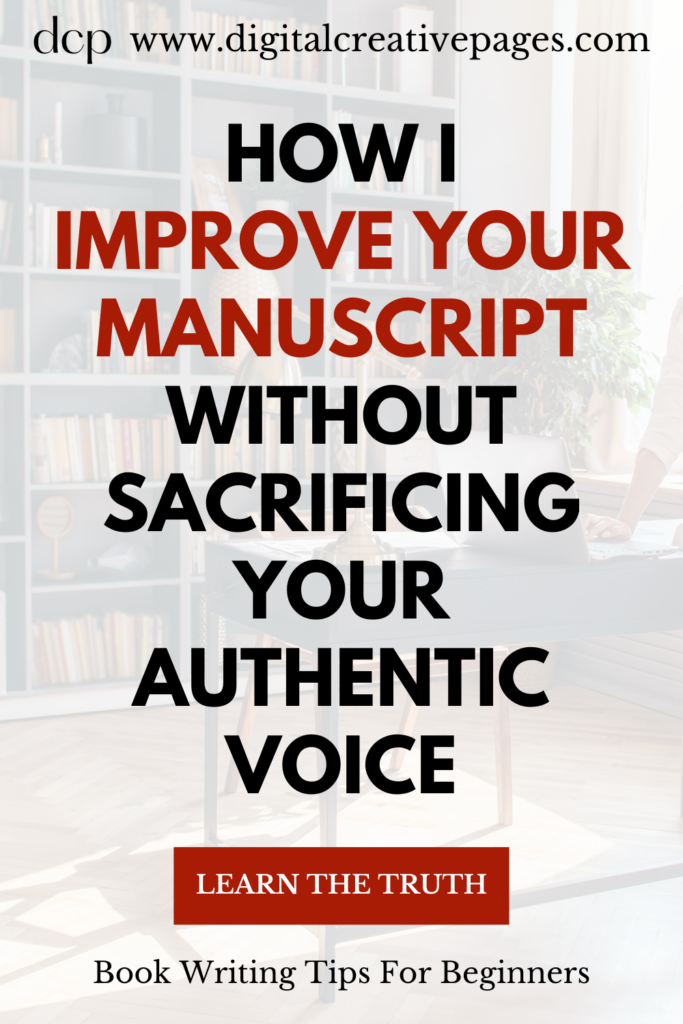
Here’s What You’ll Walk Away With
After working together, you’ll have:
- Clear, kind feedback that doesn’t overwhelm
- A stronger manuscript with your voice still intact
- A confident next-step plan for revision or publication
- Reader-focused insights that improve not just this book—but every book you write after
- Discussions after the feedback where I act like a sounding board in case you get stuck
What Authors Have Said
“Nila provided excellent feedback! She is invaluable. I was able to experience the manuscript through her eyes. Doing this has helped me revise my work to be more impactful and effective. She left many notes which has helped me refine the text even more. Her expertise is worth every penny I spent! I HIGHLY recommend Nila as a beta reader.”
— Reese Zahner, Author, Poet, SongWriter
“This was my first time using beta readers and Nila made it an enjoyable and productive experience. Her reports were very helpful as I get my book ready to send to a literary agent. Her comments help me to improve as a writer and I will continue to use her advice as I move forward in my writing career. I would definitely recommend Nila’s services to any seasoned or aspiring author.”
— Mark B, New Author
“I had the pleasure of working with Nila on my latest manuscript, and her feedback was invaluable. She has a thorough understanding of narrative structure and was able to dive deep into the underlying themes of my story. Her insights helped me identify areas for improvement that I hadn’t considered, and she provided clear, actionable suggestions that have really strengthened my work.”
— Soheil, First-Time Sci-Fi Author
How to Know If We’re a Good Fit
You’re ready for this if:
- You want feedback but not a red-pen rewrite
- You care deeply about your characters and worldbuilding
- You’re open to suggestions—but want control over your revisions
- You’d love to feel more confident before you publish
Final Thoughts: You Don’t Have to Choose Between Voice and Growth
Feedback doesn’t have to flatten your story.
In fact, the right kind of editing is what helps your true voice emerge even stronger.
Whether you’re still polishing your first draft or preparing for self-publishing, I’m here to help you bring your book to life—with heart, clarity, and purpose.
Want to talk about your manuscript?
Contact me here with your genre and word count—I’ll send over my availability.
Or, if you’re just browsing for now, download my free Beta Reading Check List to make your story stronger before you send it out.
Struggling to keep your author platform active while juggling writing deadlines?
My Author Book Engagement Template Pack includes 112 ready-to-use Canva designs for Instagram and Pinterest. Perfect for cover reveals, book launches, reader engagement, and everything in between. No more staring at blank Canva pages wondering what to post! These templates work for any genre and require no Canva Pro account. Simply download, customize with your book details and brand colors, and post.
For less than the cost of 2 lattes, get your template pack here, and never run out of engaging content ideas again
MY TOP POSTS
My introducer post – check out why I chose Showit as my website builder here
Use my code DCP to get one 1.5 months free on Showit
Get all the resources for your social media and digital marketing without breaking the bank from my DCP Shop here
Pin this for later
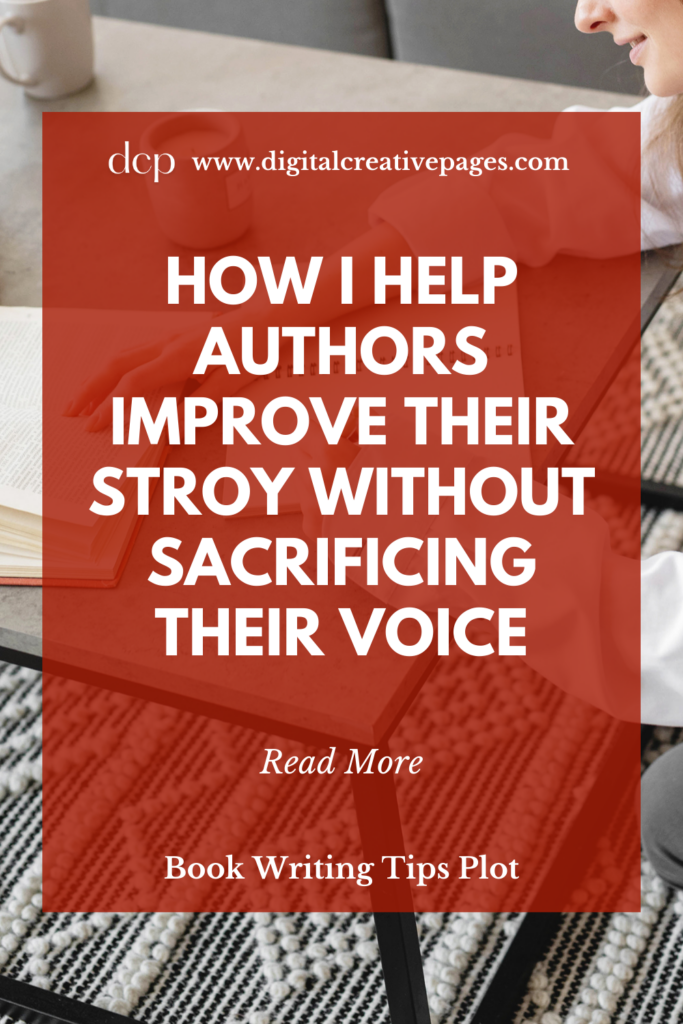
By signing up for my freebies, you are agreeing that I can use your email address to market to you. You can unsubscribe from marketing emails at any time by using the link in my emails.
Previous post
next post
Search + Enter
meet nila
Hi. I am
Nila
Beta reader, book editor, Pinterest manager, Showit VA
I’m a beta reader and book editor and PA for authors, specializing in story clarity and developmental feedback. I run a sustainable online business that keeps working for me 24/7.
Along with this, I offer Pinterest management for overwhelmed creatives and entrepreneurs and set up and customize Showit templates when the tech side gets too overwhelming.
My Shop
Buy now
i need it
Free Stuff
get the goods
check it out
My Favorites
apps + Tools
Yes, please
Handpicked Links
Excited to get started? Me too!
i can't wait to
Connect with you
Let's discuss how best I can help you and your business
find your way around
about
for authors
Showit
shop
Blog
freebies
Contact
elsewhere
X
Copyright © 2024 - 2026 Digital Creative Pages | All Rights Reserved | Terms & Conditions | Privacy Policy
Website Template by Digital Creative Pages.
Photos by Styled Stock Society
Subscribe here for weekly Canva & Social Media tips and 10% off in my shop
